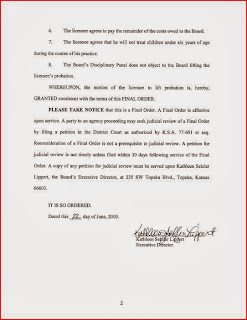"Left-handed people are more likely to develop psychotic disorders, such as schizophrenia, than mood disorders such as depression, research suggests."
Ah, the British tabloids at their very best.
The Daily Mail, a UK tabloid, ran with a story yesterday that had me in a state of complete apoplexy [quick pass the Paxil to dumb me down]
Emma Innes, who wrote the article, claimed that a new study found that among people with mental illnesses, left-handed people are more likely to suffer from psychotic disorders than illnesses such as depression.
Oh God, No - I'm left handed, although these days it does not really matter if one is left or right-handed thanks to the marvelous invention of the keyboard. (Do kids still use pens at school?)
Innes also mentions previous research that showed that left-handed women are also more likely to get breast cancer and other research that implied that left-handed people are more prone to dyslexia and also anxiety.
Oh for fcuk skae!
The "Left-handed people are more likely to develop psychotic disorders" nonsense came about as a result of a study carried out by 8 authors, 5 of whom are involved with Child and Adolescent Psychiatry.
Ah, those wonderful folk trying desperately hard to lift the "not recommended for children" warning on psychiatric drugs, eh.
Neither of the author(s) declared any potential conflicts of interest with respect to the research, authorship, and/or publication of this particular article. Whilst this may be true the institutions they work for DO receive vast amounts of money from the pharmaceutical industry.
Jadon R. Webb is Senior Clinical Fellow in Child and Adolescent Psychiatry at Yale University.
Pro Publica's 'Dollars For Docs' database is a wonderful search tool.
Let's just look at payments Yale have received over the past couple of years.
51 payments to Yale, the highest being $839,304 made by Pfizer in 2010 for "research". The breakdown of payments made to Yale can be seen here.
Mary I. Schroeder has a PhD in economics from Emory University.
55 Disclosures Found for Payments to Emory University, the highest being $189,697, once again, made by Pfizer in 2010 for "research".
Christopher Chee is Clinical Fellow in Child and Adolescent Psychiatry at the University of California.
398 Disclosures Found for Payments to University of California, the highest being $673,859 made by, you've guessed it, Pfizer in 2010 for "research".
Deanna Dial graduated from Texas College of Osteopathic Medicine, completing her last year of Child and Adolscent fellowship at UT Southwestern Psychiatric program in Dallas.
7 Disclosures Found for Payments to UT Southwestern, the highest being $31,353 made in 2010 by Cephalon.
Rebecca Hanna trained at Emory university school of medicine and completed her psychiatry residency at UT southwestern. [see above]
Hussam Jeffe is currently a psychosomatic medicine clinical fellow at Yale School of Medicine. [see above]
Jacob Mays is currently a Child and Adolescent Psychiatry fellow at the UT Southwestern program in Austin, TX. [see above]
Patrick Molitor is a senior fellow in the Child and Adolescent Psychiatry program at the Medical College of Georgia in Augusta, GA
15 Disclosures Found for Payments to Medical College of Georgia, the highest being $30,424 made in 2012 by Merck.
I'm not suggesting for one minute that the above authors received payments from pharma, just saying that the institutions they are connected to have, in the past, received huge amounts of money from pharmaceutical companies.
This, of course, isn't the first time it's been suggested that left-handed people are disadvantaged. In 1983 The New York Times ran with a similar headline to that of the UK's Daily Mail, "SOME DISORDERS APPEAR TO BE LINKED TO BEING LEFT-HANDED"
LEFT— HANDED people, already burdened by minor inconveniences in a right-handed world and by a language full of such ego-deflating figures of speech as two left feet, out in left field and left-handed compliment, also seem to face an increased risk of certain disorders that can further impair the quality of their lives.
A series of new studies show that left-handed people are more likely to suffer from learning disabilities, stuttering, migraine headaches and, according to the latest findings, autoimmune diseases, like ulcerative colitis, myasthenia gravis and celiac disease, in which the body attacks its own tissues.
Gadzooks! us lefties are doomed I tell ya, doomed.
The Bible contains about 25 unfavorable references to the left hand. The best being, in the Gospel of Matthew.
Jesus says: "When the Son of man shall come in his glory, and all the holy angels with him, then shall he sit upon the throne of his glory: and before him shall be gathered all nations: And he shall separate them one from another, as a shepherd divideth his sheep from the goats: And he shall set the sheep on his right hand, but the goats on the left. Then shall the King say unto them on his right hand, 'Come, ye blessed of my Father, inherit the kingdom prepared for you from the foundation of the world.' ... Then shall he say also unto them on the left hand, 'Depart from me, ye cursed, into everlasting fire, prepared for the devil and his angels.'" (Matthew 25:31-34, 41)
And how old is that book?
Nothing has really changed, has it?
Left-Handed U.S. Presidents who are/were more likely to develop psychotic disorders:
James A. Garfield
Herbert Hoover
Harry S. Truman
Gerald Ford
Ronald Reagan
George H.W. Bush
Bill Clinton
Barack Obama
Bob Fiddaman [left-handed and reporting from everlasting fire]
**Footnote/Thought
Does this now mean that men who masturbate with their left-hand can now claim that somebody else was doing it?






















